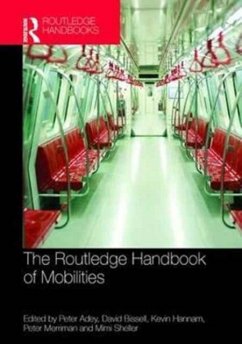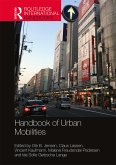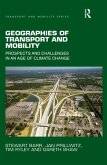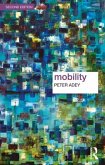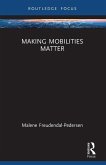The 21st century seems to be on the move, perhaps even more so than the last. With cheap travel, and more than two billion cars projected worldwide for 2030. And yet, all this mobility is happening incredibly unevenly, at different paces and intensities, with varying impacts and consequences to the extent that life on the move might be actually quite difficult to sustain environmentally, socially and ethically. As a result 'mobility' has become a keyword of the social sciences; delineating a new domain of concepts, approaches, methodologies and techniques which seek to understand the character and quality of these trends.
This Handbook explores and critically evaluates the debates, approaches, controversies and methodologies, inherent to this rapidly expanding discipline. It brings together leading specialists from range of backgrounds and geographical regions to provide an authoritative and comprehensive overview of this field, conveying cutting edge research in an accessible way whilst giving detailed grounding in the evolution of past debates on mobilities. It illustrates disciplinary trends and pathways, from migration studies and transport history to communications research, featuring methodological innovations and developments and conceptual histories - from feminist theory to tourist studies. It explores the dominant figures of mobility, from children to soldiers and the mobility impaired; the disparate materialities of mobility such as flows of water and waste to the vectors of viruses; key infrastructures such as logistics systems to the informal services of megacity slums, and the important mobility events around which our world turns; from going on vacation to the commute, to the catastrophic disruption of mobility systems.
The text is forward-thinking, projecting the future of mobilities as they might be lived, transformed and studied, and possibly, brought to an end. International in focus, the book transcends disciplinary and national boundaries to explore mobilities as they are understood from different perspectives, different fields, countries and standpoints.
This is an invaluable resource for all those with an interest in mobility across disciplinary boundaries and areas of study.
This Handbook explores and critically evaluates the debates, approaches, controversies and methodologies, inherent to this rapidly expanding discipline. It brings together leading specialists from range of backgrounds and geographical regions to provide an authoritative and comprehensive overview of this field, conveying cutting edge research in an accessible way whilst giving detailed grounding in the evolution of past debates on mobilities. It illustrates disciplinary trends and pathways, from migration studies and transport history to communications research, featuring methodological innovations and developments and conceptual histories - from feminist theory to tourist studies. It explores the dominant figures of mobility, from children to soldiers and the mobility impaired; the disparate materialities of mobility such as flows of water and waste to the vectors of viruses; key infrastructures such as logistics systems to the informal services of megacity slums, and the important mobility events around which our world turns; from going on vacation to the commute, to the catastrophic disruption of mobility systems.
The text is forward-thinking, projecting the future of mobilities as they might be lived, transformed and studied, and possibly, brought to an end. International in focus, the book transcends disciplinary and national boundaries to explore mobilities as they are understood from different perspectives, different fields, countries and standpoints.
This is an invaluable resource for all those with an interest in mobility across disciplinary boundaries and areas of study.
"The interdisciplinary field of mobility studies has expanded exponentially over the last years as the scholars included in this invaluable handbook have transformed the discussion of technology, transportation, communication, geography, and travel in the post-colonial context of war, globalization, and urbanization. This text offers a creative yet practical approach to the dynamic subjects and objects of a world of moving parts to provide insights into the terms and concepts of mobilities today." - Caren Kaplan, Professor, American Studies, UC Davis
"...this book provides an all-encompassing collection intended to provide encyclopædic coverage of mobility, its effects, and conceptual dilemmas for the social system. One of the strengths of the collection is the discussion about the extent to which mobilities may create a new cosmology for lay people and social scientists."- Maximiliano E. Korstanje, Department of Economics, University of Palermo, published in Annals of Tourism Research
"...this book provides an all-encompassing collection intended to provide encyclopædic coverage of mobility, its effects, and conceptual dilemmas for the social system. One of the strengths of the collection is the discussion about the extent to which mobilities may create a new cosmology for lay people and social scientists."- Maximiliano E. Korstanje, Department of Economics, University of Palermo, published in Annals of Tourism Research

